Christian History
Jesus, Church, & Apostles Affecting Kings & Nations

Christian History “My people are destroyed for lack of knowledge.” Hosea 4:6 |

|
Paul and Barnabas were the first apostles to go to gentile nations with the gospel. But history indicates that all the 12 apostles eventually went out to all parts of the world.
The Ethiopian Eunuch, who Philip ran to his chariot, told him about Jesus, and then baptized him. This Ethiopian eunuch court official, recorded in the book of Acts, was probably the first “evangelist” to reach his own pagan nation with the gospel. He introduced his king to embrace Jesus Christ and thereafter many of the people in Ethiopia became Christians, eventually becoming a Christian nation. It retained the formal title of being a Christian Empire for 1,600 years, until 1974.
Early generations of Ethiopian’s were genuine Christians, though eventually it was more just culturally Christian. But even culturally Christian nations as Ethiopia, the people are far better off than the pagan and Muslim nations that later surrounded Ethiopia.
Paul and Barnabas went to western nations. The 12 apostles spread out to nations in every direction of the world. One of the 12 apostles, Bartholomew, along with Thaddeus, one of the 70 disciple/apostles of Jesus, went north to the capital city of Edessa of Armenia. They evangelized the capital city with multitudes coming to Christ, along with the first king in the world that was converted to Christianity, Abgar V.
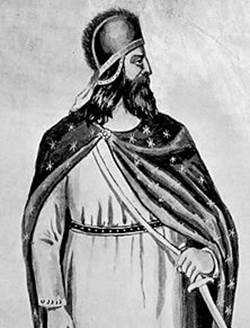
But it wasn’t until 301 AD when Saint Gregory the Illuminator evangelized in Armenia and led King Tiridates III to Christ, baptized him in 301 AD, that Armenia was finally considered the first nation in the world to “officially” adopt Christianity as its state religion. A section of the Old City of Jerusalem today is still known as “The Armenian Quarter.”
Other countries at that time had majority Christian populations as well, such as Syria, Cappadocia, and Egypt.
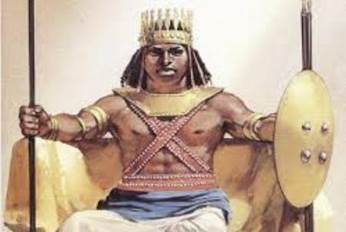
Not long after Armenia became a Christian nation, King Ezana of the African Kingdom of Aksum (320-360 AD) converted to Christianity and adopted it as the official religion of his kingdom, which included: Ethiopia (also called Abyssinia), Yemen, southern Arabia, northern Somalia, Djibouti, Eritrea, and parts of Sudan.
The early Christians had a broader understanding of the word church. It was not considered a religious word as it is today. The word “church” was first used in Athens for political civic power groups. Politics definition (from Greek: Πολιτικά, politiká, ‘affairs of the cities’): “The set of activities that are associated with making decisions in groups (churches), or other forms of power relations among individuals.”

People in Athens who wanted to affect the “affairs of their city” would gather every day to discuss what and how to do that. These city influence groups were called “church”. And this word continued in use into Jesus’ time. Different Rabbis had their student power groups, in essence their church groups, to affect the “affairs of their city”. These civic power groups/churches in Judea were made up of Sadducees and Pharisees who were administering the civil rule of law over Judea at that time. This is what made up the ruling and judicial Sanhedrin. The Pharisees were in the majority as the civil rulers – “sitting in the set of Moses” (Mat. 23:2). That is why Jesus was always contending with the Pharisees about the Mosaic Law, since it was the civil law of the land, affecting the “affairs of their city”.
It was with this backdrop that Jesus said: “I will build My (civic power group) church.” Is Jesus’ church no longer to affect the “affairs of the cities”? Certainly, reaching everybody with the gospel is foundational, but that is just the beginning. Jesus said He wants His people to be “the light of the world” and “the salt of the earth”. That would indeed affect ALL affairs of every city, and that would certainly include the political affairs of every city.
The apostle Paul specifically names civil authorities as “first” priority for the church to affect – since more than any others in a city – they affect “all people to come to the knowledge of the truth” (1Tim.2:1-4). The early church understood this as their Great Commission – “Go make disciples of all the nations” (Mat. 28:19). They were “turning the world upside down” (Acts 17:6-7). The disciples were not told to disciple the church, but rather the “nations” … and they were not turning the church upside down, but the “world”!
Aksum’s King Ezana originally minted coins with a pagan symbol at the top of a star and crescent moon. After apostles led him to Christ, he replaced the star and crescent with the Christian cross.
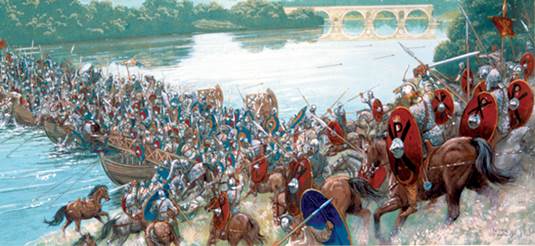
In 312 AD, Constantine the Great, was the first Roman Empire converted to Christ. His mother Helena had been a Christian and no doubt had an early influence on Constantine. But right before his battle to take over Rome he had a vision of Christ when he may have personally got converted. At that time, he had all his soldiers but the cross on their shields and he went forth in the Name of Christ conquering pagan Rome and every pagan nation thereafter.
He stopped all persecution of Christians throughout the Roman Empire and had all the Christian’s houses and lands that had been confiscated by the pagan rulers, returned to all their Christian owners. Constantine never called himself great, it was the Christians that gave him that title.
From the time of Constantine’s conversion, he began replacing all the pagan counselors around him with all Christian pastors (in those days called bishops). Despite the “deep state” of the Roman pagan Senators opposition, Constantine dramatically started changing all the godless pagan laws to God’s Mosaic civil laws. Women and children’s abuse and subjugation were outlawed. Abortion, prostitution, homosexuality, and other immoral practices were now outlawed. Pagan sacrifices became forbidden, and his reign gave the end to the gladiator contests.
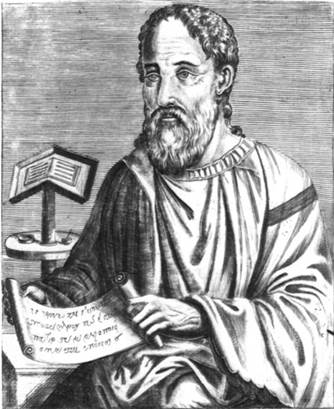
Eusebius of Caesarea was a prominent bishop/pastor, historian, eyewitness, and consistent confidant of Constantine. In 325 AD Constantine called for the Nicene Council to help unify Christians and the Christian doctrines. Constantine invited all the prominent bishop/pastors to the Council and paid for all their expenses. Eusebius wrote that when Constantine had the Nicene Council, and all 318 of the bishop/pastors were walking in the room, unlike any Roman Emperor in the past or future, Constantine stood the whole time in honor of them. From the persecutions they were slow walking in, as many were made lamb or blinded from their former Roman pagan persecutors.
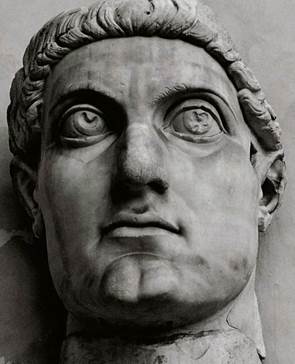
Constantine was indeed great as all Christian writers at the time and years later attested. But centuries later, and even more contemporary secular historians, have worked hard to distort Constantine’s glorious Christian history, of course to cover up enormous national benefits for Christianizing nations.
“For those who honor Me I will honor” (1Sam. 2:30). Jim just wrote a short new book intended for any person who is a civil leader at any level. It is not on the market yet but if you would like to receive a complimentary draft copy simply email a request. It is titled: Christian Civil Rulers “Why You MUST & How You CAN – Rule for The Kingdom of God!”
